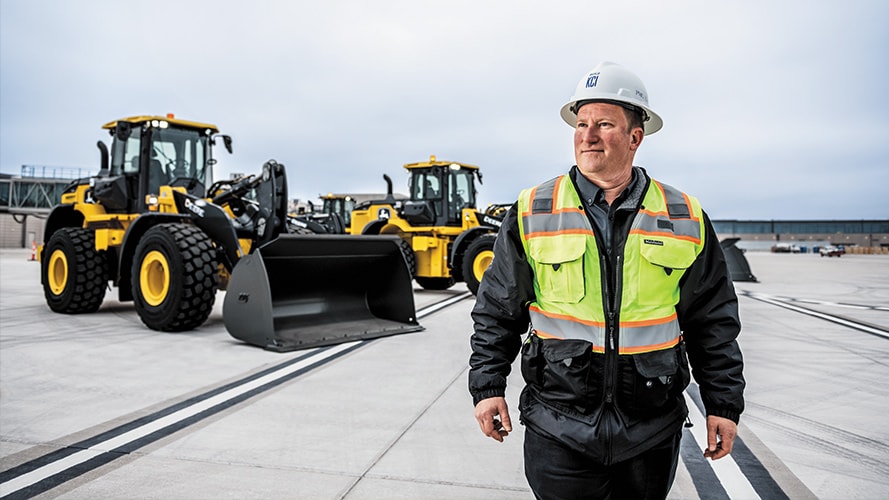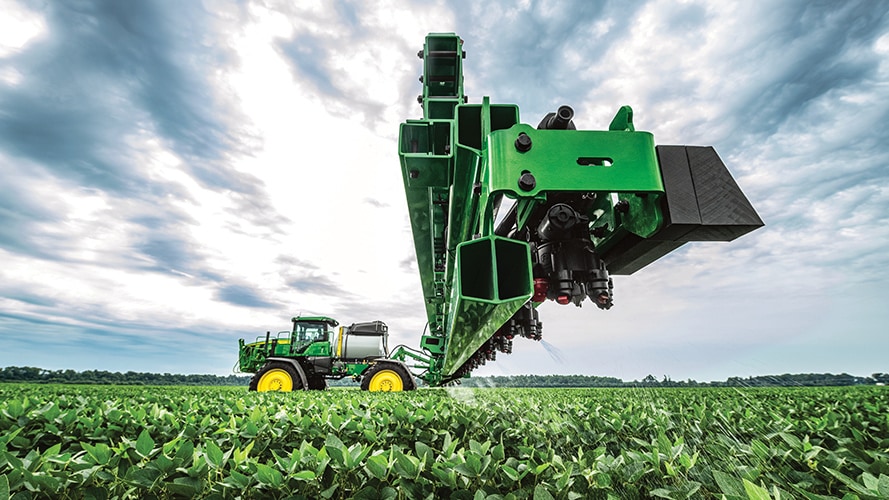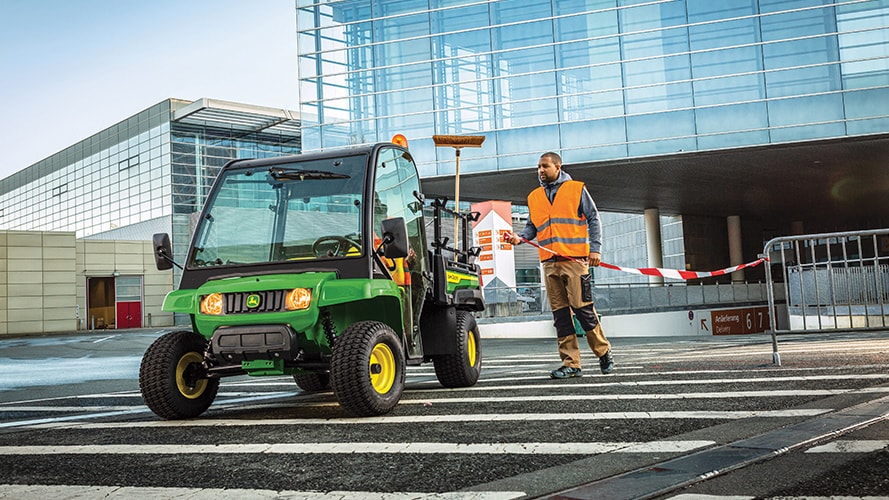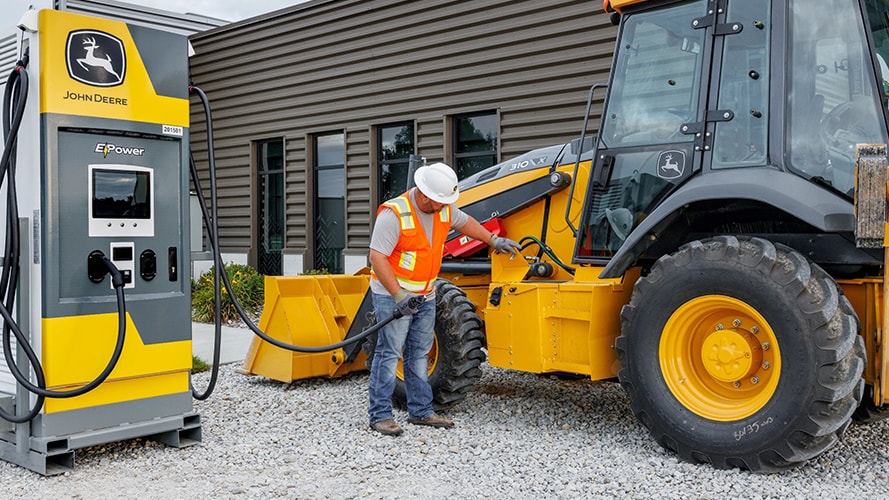The Myth: John Deere customers don’t want electric vehicles
Debunking misperceptions about battery electric vehicles
Why are we introducing battery electric vehicles (BEVs) to some product lines? Because industries we support, like high value crop farming (things like nuts and fruits), as well as customers working in turf care and construction, need it.
There are a lot of myths and misperceptions out there that our customers and employees can help address. Let’s get into it.
The myth: John Deere customers don’t want electric vehicles

The truth is, many of our construction customers have been operating hybrid electric vehicles for years and are asking for more hybrid and battery electric options.
“The 644 X‑Tier (hybrid wheel loader) is amazing and a big part of our environmental efforts to reduce noise and emissions,” says Kenny Williams with the Kansas City International Airport. “We use it almost everywhere. Given the advances in battery technology, introducing electric vehicles was a no-brainer.”
Adrian Saenz, BEV channel integration lead for small ag and turf, says this is true for high value crop and turf care customers as well.
“Growers in high value crops are highly motivated to be good stewards of resources and are looking for new technologies and tools to help them run more sustainable operations." Saenz says. “Electrification in particular provides benefits of renewable energy, but can also help customers value products grown in a way that is good for the planet.”
The myth: John Deere is making all of its products electric

Electric vehicles aren’t a good fit for every customer or product.
“We’re delivering EVs where it makes sense and delivers value for our customer,” says Nick Block, director, global marketing and sales, John Deere Power Systems, who noted that machines requiring over 130 horsepower are not candidates to be fully electric.
For over a decade, Deere has used electrification in drives and motors of several products. For example, some planters and sprayers use offboarded power to control the application of seed and chemicals.
“We’re working on a variety of solutions to combat the rising price of diesel as well as lowering carbon output by exploring more hybrid options, internal combustion engine advancements, and renewable fuels,” says Block.
The myth: Electric vehicles aren’t as durable and won’t last.
“We know the electric drive motors and a lot of the components in these machines will live long past some of the mechanical solutions we have today,” says Jon Gilbeck, manager, customer success.

The myth: Electric vehicles aren’t as powerful and don’t perform as well as diesel.
“Electric power is one of the purest forms of torque available in the world today,” says Adam Gilbertson at RDO Equipment, a Deere dealership. “The immediate responsiveness of the solution has the potential to make a huge impact on production. In addition to speed and immediate power, it has the ability for incredible precision and accuracy.”
Electric hardware and technology is evolving rapidly. As electrification technology progresses, customer demand is top of mind:

- Performance and reliability
- Quieter, easier, and intuitive operation
- Total cost of ownership advantages, including government incentives, where applicable
- Reduced complexity and simplified maintenance
- Technology enablement and scaling
- Reduced C02e emissions